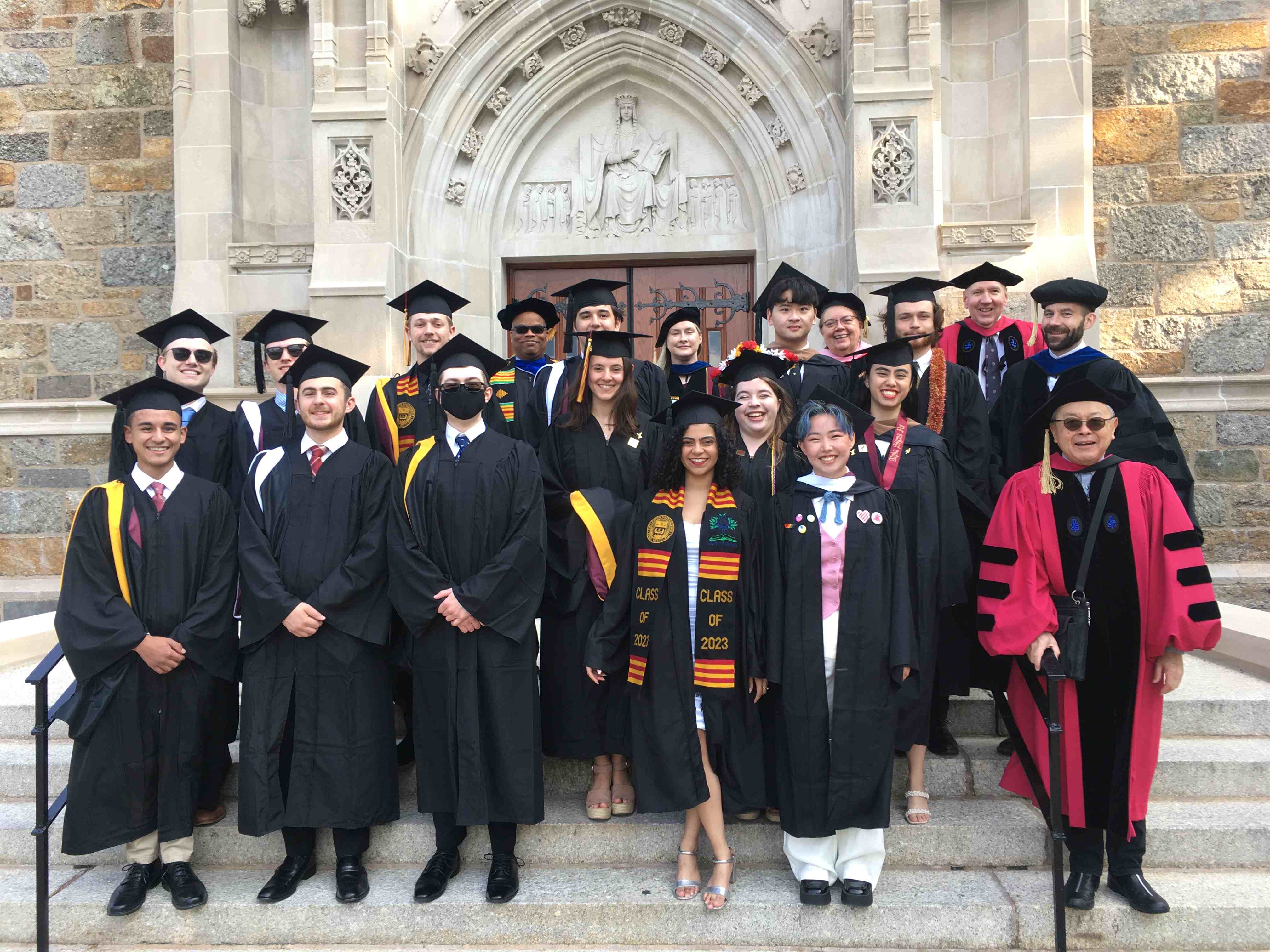Academics
The Music Department offers courses in theory, composition, and the history and current trends of both Western and non-Western music, as well as private voice and instrument lessons. Students of all levels of experience are welcome in any course, unless a prerequisite or instructor’s permission is indicated.
A Comprehensive Musical Education
Private Lessons
The Music Department offers individual instruction in voice and instruments, either for credit or not for credit.
- Students interested in for-credit lessons should enroll in either MUSP1925 (voice) or MUSP 1985 (instrumental). Students interested in non-credit lessons should enroll in either MUSP 1900/1920 (voice) or MUSP 1960/1980 (instrumental).
- Individual voice and instrumental instruction, for either credit or non-credit, requires an extra fee. In addition, several free, non-credit performance courses offer instruction and/or coaching in various instruments and ensembles.
- Private lessons, when taken for credit, require a juried performance at the end of the semester. Students may count up to three credits of individual instruction toward graduation.
Core Courses
The Music Department offers a variety of courses that satisfy University Core requirements in the Arts and Cultural Diversity and serve as introductions to the various areas of musical knowledge.


